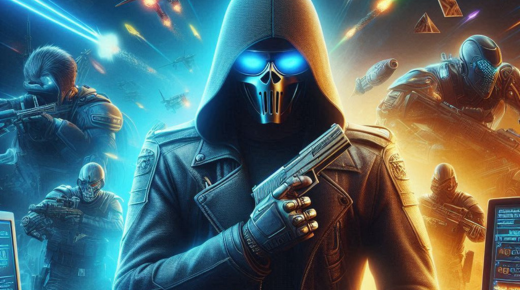1. What makes a game highly anticipated?
Games become highly anticipated based on factors such as successful past installments, innovative gameplay features, engaging storylines, impressive graphics, and the reputation of the developers or franchise.
2. What are some of the most anticipated games of the year?
Some of the most anticipated titles include The Legend of Zelda: Tears of the Kingdom, Starfield, Final Fantasy XVI, Hogwarts Legacy, and Resident Evil 4 Remake.
3. How do fans contribute to the hype for upcoming games?
Fans generate excitement through social media, fan art, theories, gameplay leaks, and attending conventions or events like E3, where developers reveal new details and trailers.
4. What role do gameplay trailers play in building anticipation?
Gameplay trailers showcase the visual and interactive elements of a game, providing insight into its mechanics, world-building, and storytelling, which significantly boosts interest and excitement.
5. How do delayed releases affect anticipation?
While delays can lead to frustration, they can also heighten anticipation, as developers often use the extra time to improve the game’s quality, leading to higher expectations upon release.
6. How important is the game’s storyline in generating anticipation?
A strong, engaging story can be a key factor in a game’s popularity, especially for RPGs, action-adventure games, and open-world titles, where narrative depth often enhances player immersion.
7. What impact does a game’s developer have on its anticipated success?
Games developed by well-known studios or franchises, such as Naughty Dog, CD Projekt Red, or FromSoftware, tend to attract more attention due to their reputation for creating high-quality titles.
8. What role does the game’s genre play in its anticipation?
Some genres, like open-world RPGs, action-adventure games, and first-person shooters, often generate more excitement due to their larger fan bases and innovative game mechanics.
9. How does early access or beta testing contribute to anticipation?
Early access and beta testing allow players to experience a game before its official release, generating buzz and giving developers valuable feedback, while also increasing community involvement.
10. How do game reviews and critic feedback affect anticipation?
Positive early reviews or glowing feedback from critics can help raise a game’s profile, while negative reviews or technical issues during pre-release can diminish excitement.
11. What makes a game’s multiplayer or online features highly anticipated?
Games that offer competitive multiplayer, cooperative modes, or large-scale online worlds (such as Destiny 2 or Overwatch 2) often draw high levels of anticipation due to the potential for community engagement and longevity.
12. How does exclusive content or platform deals affect anticipation?
Exclusive content, such as early access, bonus missions, or platform-specific features, can increase anticipation, particularly for console-exclusive titles or games tied to specific systems like PlayStation or Xbox.
13. What is the role of fan expectations in building anticipation?
Long-standing fanbases for franchises like The Elder Scrolls, Final Fantasy, or The Witcher series generate anticipation through high expectations based on previous titles, adding pressure for new releases to meet or exceed prior standards.
14. What influence do influencers and streamers have on game anticipation?
Popular streamers and YouTubers can create massive buzz around upcoming games through gameplay previews, live streams, and influencer marketing, shaping the perception of a game before its release.
15. How does the competitive gaming or esports scene influence anticipation for a game?
Games with strong competitive multiplayer elements, like Valorant, League of Legends, or Apex Legends, are highly anticipated due to their potential for esports tournaments and active player communities, often boosting their visibility and excitement in the gaming community.














Leave a Reply